General election 2019: Voters head to polls across the UK
- Published
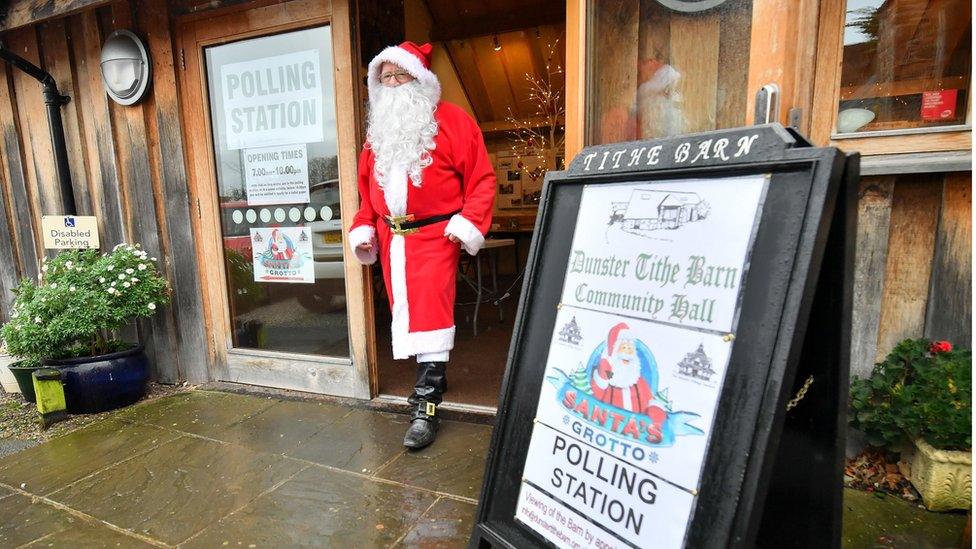
The UK is going to the polls for the country's third general election in less than five years.
The contest, the first to be held in December in nearly 100 years, follows those in 2015 and 2017.
Polling stations in 650 constituencies across England, Wales, Scotland and Northern Ireland opened at 07:00 GMT.
After the polls close at 22:00 GMT, counting will begin straight away. Most results are due to be announced in the early hours of Friday morning.
A total of 650 MPs will be chosen under the first-past-the-post system used for general elections, in which the candidate who secures the most votes in each individual constituency is elected.
In 2017, Newcastle Central was the first constituency to declare, announcing its result about an hour after polls closed.
Elections in the UK traditionally take place every four or five years. But, in October, MPs voted for the second snap poll in as many years. It is the first winter election since 1974 and the first to take place in December since 1923.
Anyone aged 18 or over is eligible to vote, as long as they are a British citizen or qualifying citizen of the Commonwealth or Republic of Ireland and have registered to vote. Registration closed on 26 November.
General election 2019: From the count, to your TV
Details about where to vote can be found on the Electoral Commission website, external and are also listed on polling cards sent to households.
People do not need a polling card to be able to vote but will need to give their name and address at their local polling station. People can only vote for one candidate or their ballot paper will not be counted.
Prime Minister Boris Johnson has cast his vote - he visited a polling station in central London, taking his dog, Dilyn, along with him, and Labour leader Jeremy Corbyn posed for pictures when he went to vote in north London.
SNP leader Nicola Sturgeon visited a polling station in Glasgow, while Liberal Democrat leader Jo Swinson cast her vote at a polling station in East Dunbartonshire, accompanied by her husband Duncan Hames.
Plaid Cymru leader Adam Price voted in Carmarthenshire and Green Party co-leader Jonathan Bartley did so in south London.
Brexit Party leader Nigel Farage has used a postal vote.
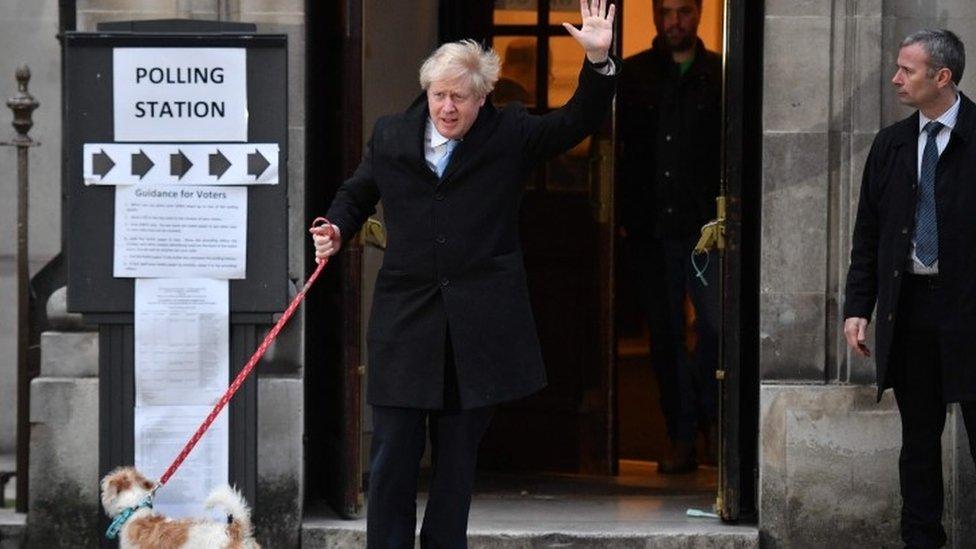
Boris Johnson took his dog to the polling station when he cast his vote
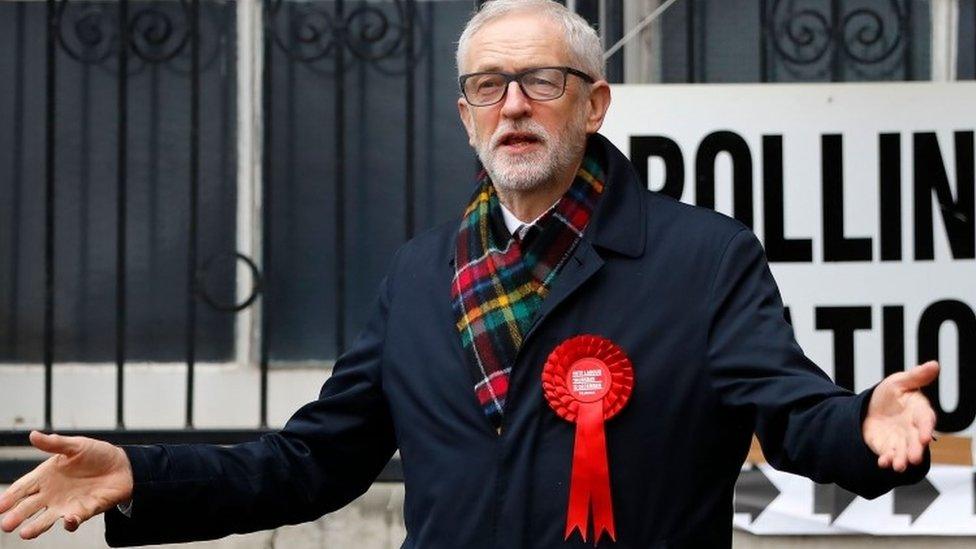
Jeremy Corbyn posed for pictures at his local polling station in north London
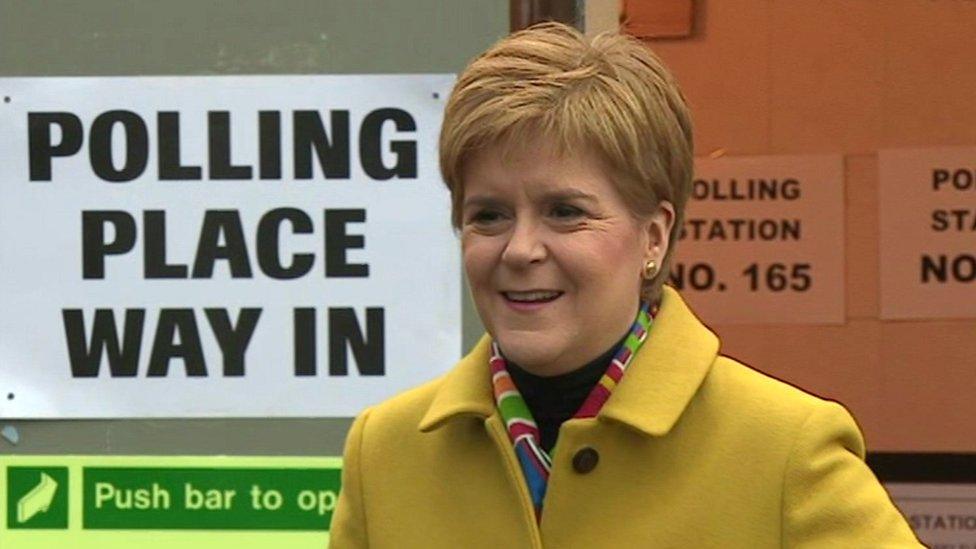
Nicola Sturgeon cast her vote in Glasgow
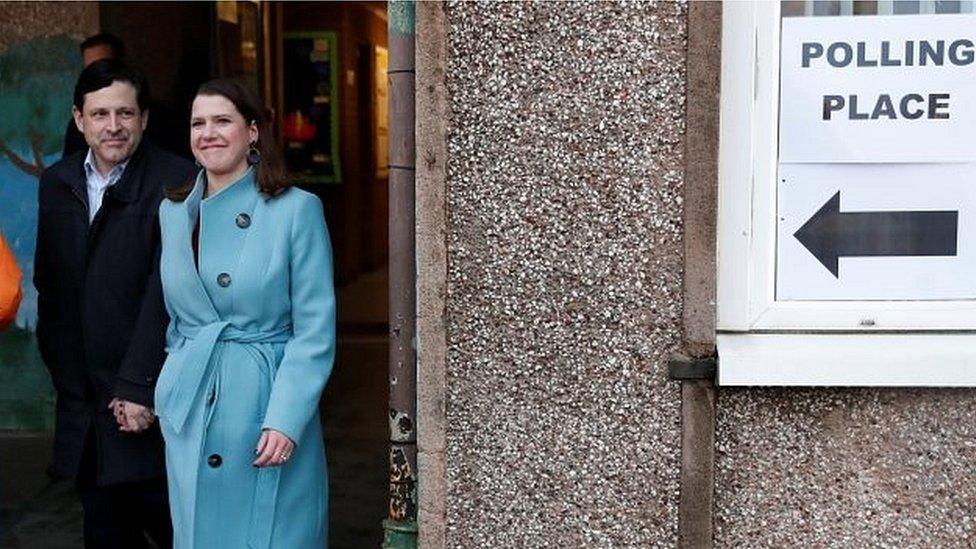
Jo Swinson also voted in East Dunbartonshire, accompanied by her husband Duncan Hames
Ahead of the poll, the elections watchdog has reminded voters that taking selfies and other photos inside polling stations is not permitted and may be a breach of the law.
Many people have already put a cross next to the name of their favoured candidate by voting by post - more than seven million people used a postal vote two years ago.
Those who applied for a postal vote but have yet to return it to their Electoral Office must do so by 22:00. Alternatively, they can hand it into their local polling station by the close of polls.
According to the BBC's weather forecast, showery spells will continue into the evening in much of the UK.
Election night timings: What? Where? When?

Follow election night on the BBC
Watch the election night special with Huw Edwards from 21:55 GMT on BBC One, the BBC News Channel, iPlayer
As polls close at 22:00, the BBC will publish an exit poll across all its platforms, including @bbcbreaking, external and @bbcpolitics, external
The BBC News website and app will bring you live coverage and the latest analysis throughout the night
We will feature results for every constituency as they come in with a postcode search, map and scoreboards
Follow @bbcelection, external for every constituency result
From 21:45 GMT, Jim Naughtie and Emma Barnett will host live election night coverage on BBC Radio 4, with BBC Radio 5 live joining for a simulcast from midnight
